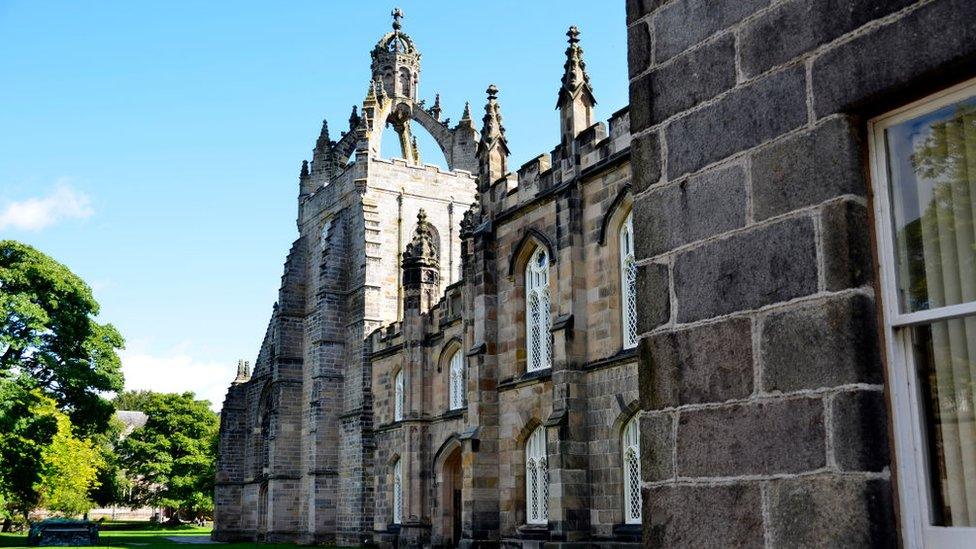Aberdeen university strike ballot opens after cuts to languages
- Published

The university is planning to scrap single honours courses in modern languages.
Staff at the University of Aberdeen are balloting on potential strike action after the institution decided to cut single degrees in modern languages.
The University and College Union (UCU) said about 30 people were at risk of redundancy due to the changes.
From the next academic year, students will not be able to start single honours degrees in French, German, Spanish or Gaelic.
Those wishing to study them will have to do so as part of a joint degree.
The university court announced the decision in December, based on a recommendation from the senior vice principal, Professor Karl Leydecker.
Its management said low uptake of the courses meant the current model is not sustainable.
This academic year, a total of five students began single honours across our four modern language programmes including Gaelic, the university said.
A UCU ballot on industrial action is opening on Wednesday and will run until 7 February.
The union's branch chairwoman, Dr Rachel Shanks, said modern languages are a key part of any university and cutting the single honours degrees would force local students to leave the area to study.
"For an ancient institution with the history and reputation of Aberdeen to consider this move is frankly embarrassing," she said.
"It's clear that this is just the start of senior management's plans.
"It's important that members send a clear message that we don't accept the need for jobs to be lost and that we will stand behind and support any member whose job is threatened."
Extended consultation
The University of Aberdeen said there had been long-term decline in demand in the UK for traditional specialist language study.
In a statement, it said: "We understand many people care passionately about languages but in a challenging financial period for many universities, the high cost of running programmes with an average in each of just one new student a year is unsustainable.
"For this reason the university is consulting on how we develop a robust future for modern languages. Importantly court, the university's governing body, has also confirmed that we will continue to provide joint honours programmes in which students can, for example, study French or Gaelic with history."
The statement added: "Court has also extended the consultation period until mid-February. During this period, we are engaging constructively with colleagues, students and UCU. We are very grateful to all those who have responded to the consultation."
Related topics
- Published4 December 2023

- Published30 November 2023
